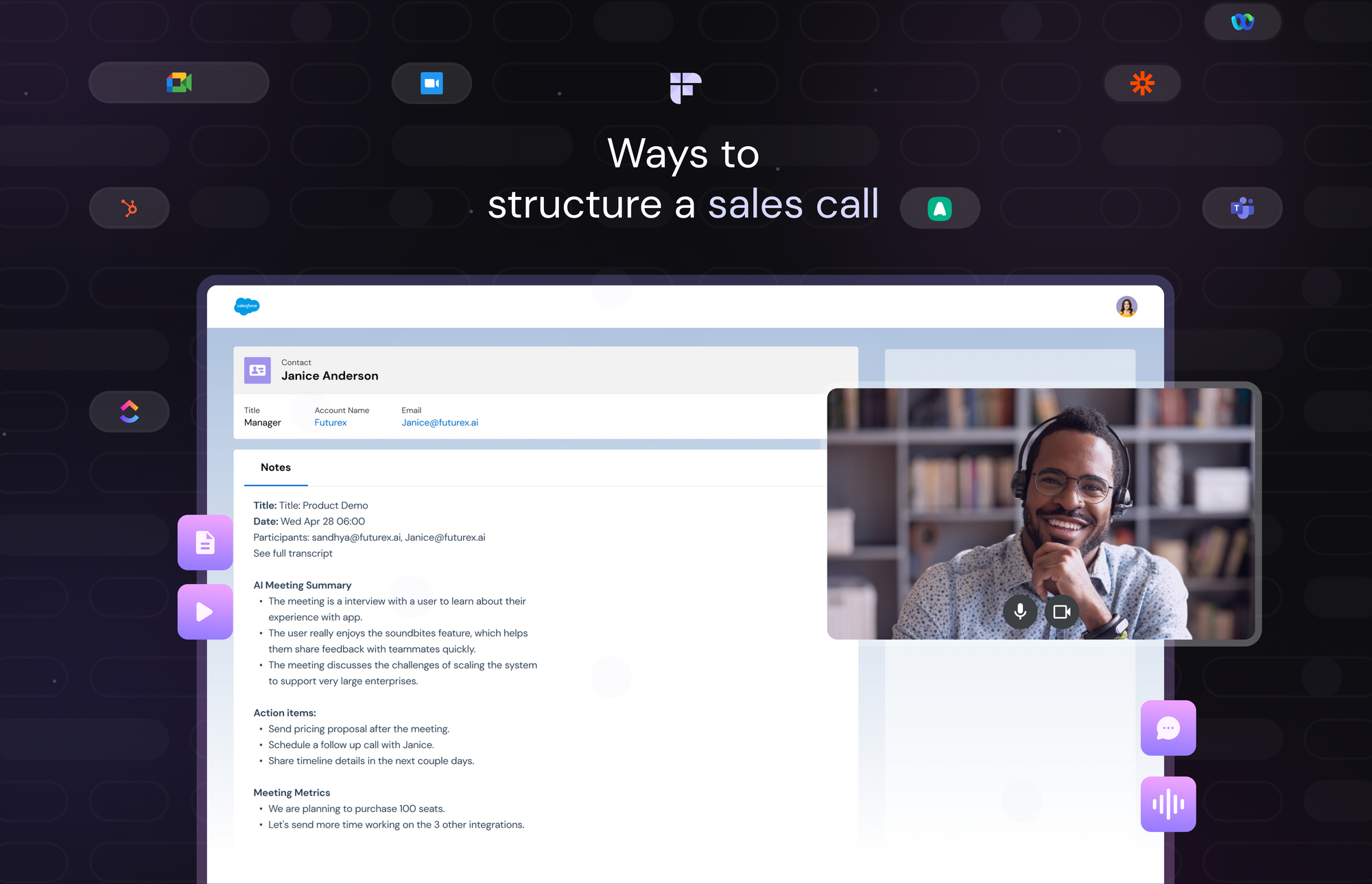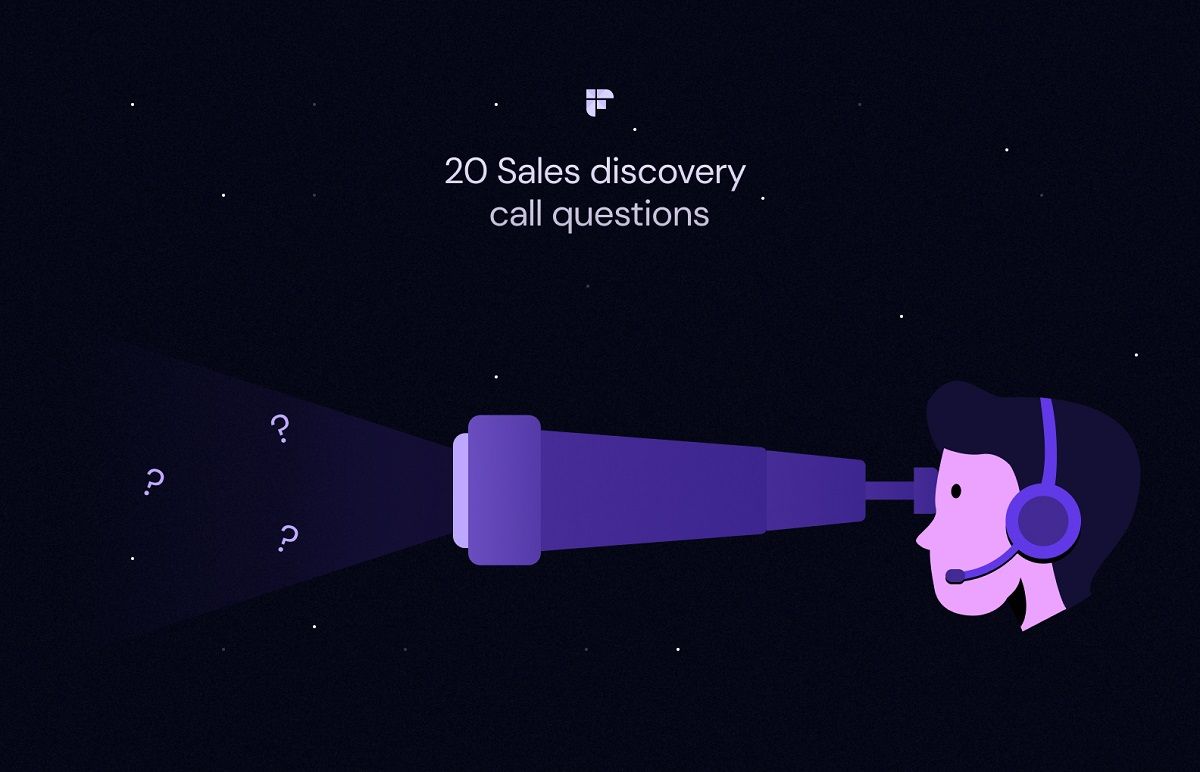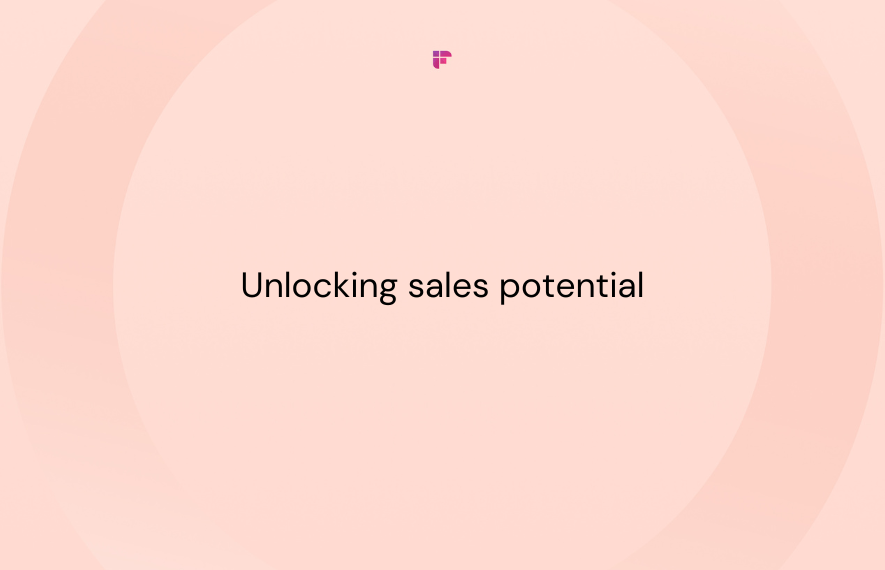What is a discovery call in sales? It's your first step in closing a deal. Let's see how.
You have successfully scheduled a discovery call with a prospect. Whether you did it through a cold call, a referral, or a high-value marketing form, you managed to grab the lead's attention. You did it!
What's next? What do you ask? How do you structure your call? How do you ensure you increase your chances of winning the prospect?
This blog answers these and more such questions. Presenting 20 discovery call questions, you must ask to win more business. But first, let's understand the definition of a discovery call.
What is a discovery call?
A discovery call is a part of the lead qualification process. It is the first call you make to prospects after they show interest in your product or service. It's a process where you ask them various questions to understand their pain points, overall needs, budget, and more.
Sales reps like to call this first actual interaction a "discovery call," while prospects informally call these "fishing expeditions."
No matter how you describe it, this first connection, when done right, can be the start of a tremendous vendor-customer relationship. By the right way, we mean having a sales discovery process and the right set of questions. Ultimately, your questions will help determine if the lead is a good fit and if you should move them further in the sales funnel.
But before you pick up the phone, ensure you are prepared for the sales discovery process. The following section will help you do so.
The importance of sales discovery questions
Sales discovery questions are fundamental inquiries posed by sales professionals during initial client interactions, particularly in B2B sales settings.
These questions are vital for establishing rapport, understanding the prospect's requirements, pinpointing any challenges they may face, and clarifying how your product or service can address their specific needs and objectives.
By understanding the key aspects such as pain points, goals, and existing obstacles, sales discovery questions contribute to achieving a tailored and effective sales approach.
How to prepare for a sales discovery process?
You can divide your preparation in two stages:
Stage 1: Research

- Research prospects and their company: Before you call the lead, learn more about their job roles, industry, and pain points. A quick background research will give you all the valuable information you need to tailor your questions.
- Review your buyer personas: Not all leads will be a good fit. So, review your personas, budget, company size, revenue, and other criteria to remember the qualification criteria.
Stage 2: Strategy
- Segment your discovery call questions: Segment your questions based on introduction, qualification, disqualification, and next action items to have a chronological flow in your conversation.
- Be prepared with insights: Research and gather relatable industry insights you can share with your prospects. Think of case studies, industry reports, and so on.
- Show your product's value: Sure, discovery calls are the first conversation with your lead. But it can also be a platform to demonstrate the value of your product. Show how your solution can alleviate your prospect's pain points and help them achieve their goals.
A typical discovery call follows this basic structure:
- Introductions
- Expectations
- Discovery
- Solution
- Next steps
Now that you know your lead, it's time to nail the discovery call.
Here are some tips for having an effective conversation:
- Ask open-ended questions. This will allow your prospects to explain their answers. If they provide one-word replies, encourage them to expand by using statements like "Tell me more about ___."
- Listen and empathize. Studies suggest that 69% of buyers cited "listening to my needs" as the number one thing a sales rep should practice for improving the overall sales experience. You get the point, right?
Carefully listening to your prospect, validating their emotions, and providing a response based on the situation can leave a great impression.
- Ask for feedback. Take feedback from your leads and ask if they have any follow-up questions. This is a chance to clear any lingering doubts or misunderstandings.
- Don't be hard on yourself. Sometimes even after your preparation, things may go differently than planned. And that is ok. Think of it as a valuable learning experience.

Sales Discovery Call Structure
20+ discovery Call Questions for Result-Driven Sales in 2024
Discovery questions for sales qualify a prospect for your product or service. A rule of thumb: keep them open-ended. Probe your prospect's needs, processes, goals, and obstacles.
These questions can be divided into four broad categories: introduction, qualification, disqualification, and the next step.
Introductory questions
This stage setting phase validates all your pre-call research. It's also a phase to learn about the lead's pain points and get all the valuable insights you need to move forward.
1. Tell me about your company.
This is a seemingly simple yet highly critical question. Asking this allows the lead to introduce themselves and tell you more about their company.
One word of advice: time this question well. It shouldn't look like you don't know anything about the prospect. Start by saying all that you know and then allow them to add to your description.
2. What is your role, and what do you do day-to-day?
This question is a must if you want to know more about the lead in a more casual way.
3. What are your KPIs, or what metrics do you drive?
If the lead hasn't spoken about the key metrics they track, it is time to ask this question. Ensure you ask for a quantifiable metric to understand how they measure success.

Qualification questions
After this brief introduction and insights into your prospect's roles, it's time to understand their pain points. Use these discovery questions for sales to learn about the prospects' problems and qualify them based on their answers.
4. What are your goals?
This answer will depend on the prospect's role in the organization. You can be more specific by asking about the prospects' timelines to achieve those goals. It can be next month, quarter, or even a year.
This timeline will depend on your product's implementation. For instance, asking about immediate goals is better if you sell a self-serve product. Similarly, asking for yearly goals makes more sense if it's an enterprise-level solution.
5. When do you need to achieve these goals?
While previous inquiries might touch upon timelines indirectly, this question explicitly asks when the prospect aims to reach their goals. For instance, if their objective is to increase revenue by 5% year-over-year, it's essential to clarify whether this target must be met within the next three months, aligning with the upcoming New Year, rather than assuming it refers to the following year.
6. What problem are you trying to solve?
This question may sound vague, but that is how it should be. Give the prospect a chance to express their problems and business challenges.
7. What do you think is the root cause behind the problem you're trying to solve?
This is a vital follow-up question to uncover all the areas of friction. Knowing the problem is not enough. Understanding why they are having these problems will allow you to tailor your pitch and explain how your solution can remove the source of the problem.
8. Why is it a priority today?
Understanding the rationale behind its urgency can provide insights into the severity of the problem for the prospect. While this question might seem redundant if the prospect has already shared the reasons, probing deeper can unveil any underlying urgency.
9. Why hasn't it been addressed before?
Identifying past roadblocks sheds light on current challenges or potential future hurdles. For instance, if budget constraints were a hindrance before, it signals the importance of assessing financial considerations in the decision-making process.
10. How would you define a successful outcome?
This question is your chance to visualize success for the prospect. Is it even realistic? Can your product help them achieve it? Listen to the answers without prejudice and fully understand their expectations.
11. What made you explore us?
In this question, try to find an answer that focuses on the prospect's expectations of your solution.
12. Which features or factors matter the most when choosing which solution is right for you?
This can be functionality, scalability, price, or any other factor. Map it to your personas and other demographic or firmographic criteria to qualify or disqualify the prospect.
Disqualification questions
Next, it's time to ask all the discovery questions in sales that reveal the decision-making process, from budgeting to scheduling, and see if the prospect is a good fit.
13. What are your primary roadblocks?
Even if you know the roadblocks the prospect will face, it's still necessary to ask this question to get straight answers from them.
14. What's your timeline for implementation?
Does the prospect's timeline align with your product's implementation and product timelines? If not, they are not a good fit.
15. What's the approximate budget?
Does the lead have enough budget to invest in your product?
16. Can you explain the purchasing process?
This will tell you how soon you can close the deal.
17. Who will be funding the project?
While this might be too probing, ask this question only after measuring the interaction's tone. Ask it only if the lead sounds comfortable and is willing to share more information.
18. Does an "executive sponsor" own the budget"?
It's always good to know if the budget owner is an entire department or an individual, such as an executive sponsor, who is usually a senior-level employee or a C-suite executive.
Questions to move to the next steps
Lastly, ask discovery call questions aimed at moving the leads further into the sales pipeline. Ask questions related to the next steps.

19. Do you have written decision criteria for choosing a vendor?
It's crucial to understand if there are written criteria guiding the vendor selection process. Typically, smaller firms might not have these criteria, but they are common in larger enterprises. If feasible, try to obtain access to these criteria to align your approach accordingly.
20. What's the process for actually purchasing the product once you decide?
As the conversation progresses and trust builds, it's appropriate to inquire about the purchasing process, including any legal or procurement reviews involved. This demonstrates your readiness to move forward while respecting the prospect's procedures.
21. What are potential curveballs?
While previous questions may have touched on obstacles, this inquiry specifically uncovers any unforeseen challenges that could jeopardize the deal's progress, ensuring a more comprehensive understanding of potential hurdles.
22. Who else is involved in selecting the vendor?
This question will help you understand if the prospect is a gatekeeper, decision-maker, or decision influencer.
23. Have you purchased a similar solution before?
If the lead has already used a similar product in the past, try to identify which one. Even if the lead is elusive about the name, it's your chance to establish a competitive advantage and uphold your brand above the competition.
24. Is this a competitive situation?
This will tell you if your prospect is looking at other vendors without sounding defensive or whiny.
25. How will things become better after you implement this solution?
Nudge your prospect to imagine how things will improve once they use your product. Will they gain more customers, automate tasks, or become more efficient?
26. What's a good time to follow up with you?
Conclude the call by asking for a date to follow up and take the conversation forward. You'll know if your discovery call went well, if the prospect suggests the next steps, or if you can define a written sales call discovery question's plan.
If there is lingering uncertainty when you hang up the phone, keep another call to iron out the rest of the details.
6 Tips to collect actionable responses during sales discovery calls

A great sales discovery call also requires you to ask the appropriate questions and have a dialogue. These tips will help you avoid getting monosyllabic answers and encourage prospects to divulge the most valuable information you need.
- Ask probing questions: Firstly, it's important to avoid binary questions that only prompt yes or no answers. Instead, we suggest you opt for open-ended inquiries to elicit more detailed responses. For instance, rather than asking, "Does your marketing head handle budgets?" inquire, "Who oversees the project's budget?"
- Keep questions simple and singular: You can do this by avoiding overwhelming prospects with a barrage of questions in one sentence, as this can lead to confusion and incomplete answers. Maintain clarity and focus by posing one question at a time. Prepare a list of essential inquiries beforehand to stay organized during the call.
- Document insights in real-time: Taking notes during sales discovery calls questions is invaluable. It enables you and your team to reference key points as the lead progresses through the sales pipeline. Consider leveraging AI-driven notetaking tools like Fireflies to automatically transcribe conversations and seamlessly integrate them into your CRM.
- Encourage rapport through active listening: Listening attentively to prospects demonstrates empathy and understanding of their pain points. Remember, effective communication is a two-way street. Utilize conversation intelligence software to track vital metrics such as talk time, question frequency, and silence duration for deeper insights.
- Reserve product demos for later stages: While it may be tempting to showcase your product's capabilities during the discovery call, refrain from doing so. Instead, focus on gathering pertinent information and positioning yourself as a trusted advisor. Save product demonstrations for subsequent interactions to maintain the integrity of the discovery process.
- Take notes during the call: Taking notes during these calls is important. It allows you and your team to refer these notes as the lead progresses along the sales funnel. You can use an AI notetaker like Fireflies.ai to automatically record and transcribe your calls. When you automate note-taking, you can focus solely on having engaging conversations.
How can Fireflies.ai help maximize sales success?
With Fireflies.ai serving as your note-taking tool, you can be present during your sales discovery calls. Other advantages of using this tool are:
- Capture and transcribe effortlessly: This tool ensures that no valuable information is overlooked during sales discovery calls by effortlessly capturing and transcribing crucial insights from your sessions.
- Eliminate manual data entry: Fireflies integrates with 40+ business apps, including CRM solutions, so you can automatically push meeting notes under the right contact in your CRM. Learn more about Fireflies CRM integrations.
- AI-powered search: The tool also lets you find specific information from your meetings in minutes with Smart Search filters.
- Topic tracker: Track key topics and phrases like budget, competitors, and objections and quickly when and how often they are mentioned during a call.
- Enhanced collaboration: Add comments, pins, and reactions to specific parts of your call.
- Reduce ramp-up time: Use Soundbites to create small audio clips of key moments of your top performers' calls and bundle them into a playlist for new joiners.
- Conversation intelligence: Fireflies.ai lets you leverage conversation intelligence to track key metrics, such as talk-to-listen ratio, number of questions asked and calls made, sentiment, and silence duration, for data-driven feedback.
- Create follow-up content: Use the GPT-4-powered chatbot AskFred to ask questions about the meeting or use it to create emails, summaries, reports, etc.
- Real-time knowledge base: This AI meeting assistant lets you organize meetings into different channels. This means all your sales discovery calls can be organized into one channel for easy access.
All in all, with its advanced AI features and intuitive interface, Fireflies.ai is the smart choice for maximizing productivity and the success of your sales discovery calls.
Boost deal success with smart sales discovery call questions and Fireflies.ai
A great sales discovery call starts by investing time and energy. The more prepared you are, the more you will be able to engage in a dialogue with the prospect and determine if they are a good or poor fit for your product.
Begin your sales discovery calls with impactful questions and Fireflies' powerful tool. By investing in preparation and leveraging Fireflies for seamless recording and analysis, you'll engage prospects effectively and determine the best fit for your product.
So what are you waiting for? It's time you master the discovery call process with Fireflies, close more deals, and elevate your sales performance to new heights.









